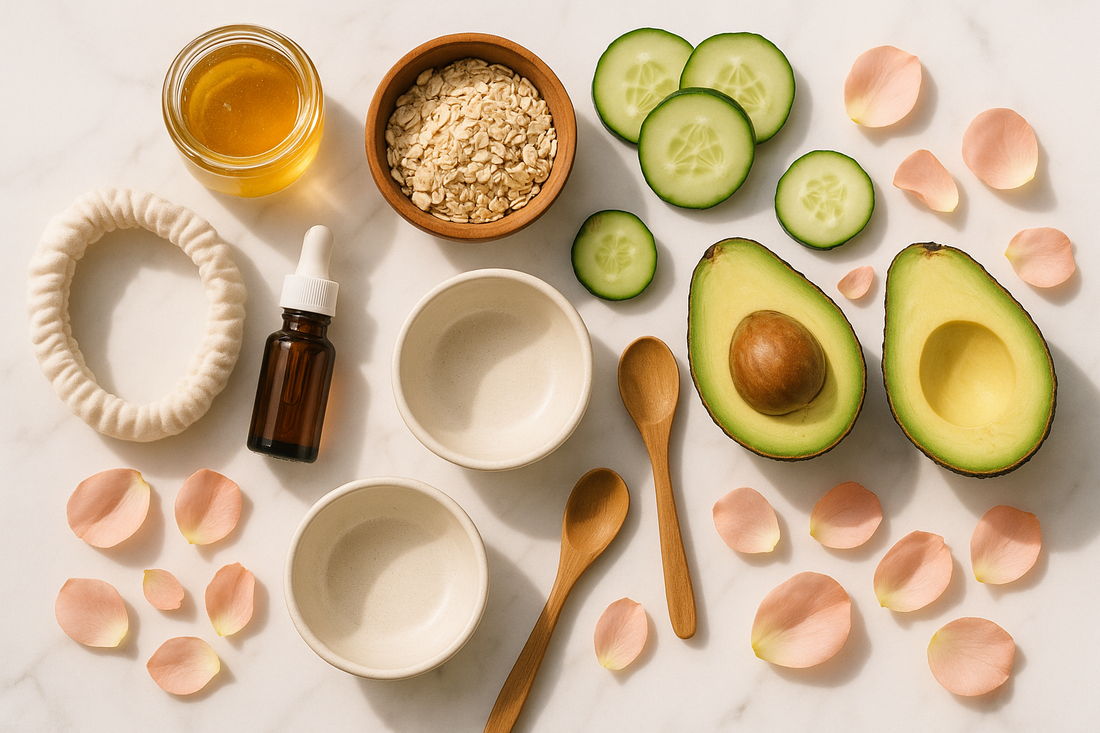
DIY Skincare vs. Store-Bought Products: What's Really Effective?
Share
In the ever-evolving world of skincare, the debate between DIY (do-it-yourself) and store-bought products has been raging on. As the founder of Rosiavalebeauty, a Gen Z-approved natural skincare brand, I've seen firsthand the growing interest in homemade concoctions and the allure of TikTok-inspired beauty trends. But what's really the most effective approach to achieving healthy, glowing skin?
The Rise of DIY Skincare
The DIY skincare movement has been gaining momentum, particularly among the younger generation. With the abundance of tutorials and recipes available online, it's never been easier to whip up your own face masks, serums, and moisturizers. The appeal lies in the ability to customize your routine, use natural ingredients, and potentially save money.
From honey and avocado face masks to green tea and vitamin C serums, the options for DIY skincare are endless. Many people are drawn to the idea of having complete control over what goes on their skin and the satisfaction of creating their own products.
Potential Pros and Risks of DIY Skincare
The benefits of DIY skincare are numerous. By using natural, often organic ingredients, you can avoid the potential irritants and harsh chemicals found in some store-bought products. Additionally, DIY skincare can be more cost-effective, especially for those on a tight budget.
However, it's important to note that not all homemade concoctions are created equal. Without proper knowledge and research, DIY skincare can pose risks, such as skin irritation, allergic reactions, or even unintended consequences. Certain ingredients, when combined or used incorrectly, can cause more harm than good.
The Advantages of Store-Bought Skincare
On the other hand, store-bought skincare products offer a range of advantages. Formulated by professional chemists and dermatologists, these products undergo rigorous testing and quality control to ensure safety and efficacy. They often contain highly concentrated, scientifically-backed ingredients that can target specific skin concerns more effectively than homemade alternatives.
Additionally, store-bought products come with the convenience of consistent formulations, making it easier to maintain a reliable skincare routine. They also offer a wider variety of specialized products, from targeted serums to advanced anti-aging treatments, catering to diverse skin types and needs.
Effectiveness: DIY vs. Store-Bought
When it comes to the effectiveness of DIY skincare versus store-bought products, the answer isn't always straightforward. It largely depends on the specific ingredients, formulations, and the individual's skin type and needs.
DIY skincare can be highly effective, especially for those with simple skin concerns or a preference for natural ingredients. However, the potency and stability of homemade products can vary, and the lack of standardization can make it challenging to achieve consistent results.
On the other hand, store-bought products often benefit from advanced technology, scientific research, and strict quality control measures. This can result in more consistent, stable, and potentially more effective formulations. Additionally, the specialized products available in the market can be tailored to address specific skin concerns more effectively than a one-size-fits-all DIY approach.
When to Choose DIY vs. Store-Bought
The decision to choose DIY or store-bought skincare ultimately comes down to individual preferences, skin type, and specific needs. Here are some factors to consider:
Skin Type and Concerns
If you have sensitive skin or are dealing with complex skin issues, it may be safer to opt for store-bought products that have been formulated and tested by professionals. DIY skincare may be better suited for those with relatively healthy, uncomplicated skin.
Time and Effort
Creating your own skincare products can be time-consuming and require a certain level of effort and research. If you're short on time or prefer a more convenient routine, store-bought options may be the better choice.
Budget
DIY skincare can be more cost-effective, especially for those on a tight budget. However, the cost of ingredients and the potential for trial and error can add up. Store-bought products may be a better option for those with a higher skincare budget.
Customization
The beauty of DIY skincare lies in the ability to customize your products to your specific needs. If you have unique skin concerns or prefer a personalized approach, homemade concoctions may be the way to go.
Expert Recommendations
According to leading dermatologists, the most effective skincare routine often involves a balanced approach, incorporating both DIY and store-bought products. The key is to understand your skin type, research ingredients thoroughly, and experiment cautiously with homemade recipes.
"When it comes to skincare, there's no one-size-fits-all solution," says Dr. Emma Roche, a renowned dermatologist. "The most important thing is to listen to your skin and find a routine that works for you, whether that's DIY or store-bought products."
Conclusion
In the end, the choice between DIY and store-bought skincare ultimately comes down to personal preference, skin type, and specific needs. While DIY skincare can be a fun and cost-effective way to take control of your skin, it's crucial to approach it with caution and research. Store-bought products, on the other hand, offer the convenience of consistent formulations and the expertise of professional chemists and dermatologists.
The key is to find a balanced approach that works for you, incorporating both homemade and store-bought products as needed. By staying informed, experimenting mindfully, and listening to your skin, you can achieve the healthy, glowing complexion you've been seeking.
So, whether you're a DIY enthusiast or a devoted fan of store-bought skincare, remember that the most effective routine is the one that makes you feel confident and comfortable in your own skin.
